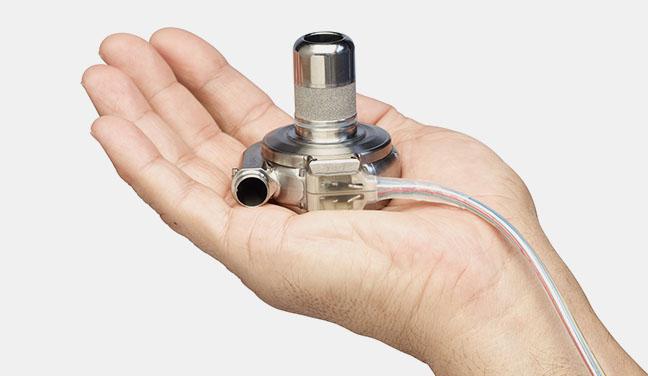FDA Grants HeartWare LVAD a Destination Therapy Indication
The device, previously approved as a bridge to transplant, can now be used in patients who are not eligible to receive a new heart.

(UPDATED) The HeartWare left ventricular assist device (LVAD) may now be used in the United States as a destination therapy in patients with end-stage heart failure who are not candidates for transplantation, device maker Medtronic announced Wednesday.
The approval by the US Food and Drug Administration (FDA) expands the indications for the system, which had previously been cleared as a bridge to transplant in patients who were eligible to undergo cardiac transplantation.
The new indication is “important because of the fact that we need to continue to advance the field of left ventricular assist device support both for short-term support . . . as well as for destination therapy,” Maryl Johnson, MD (University of Wisconsin-Madison), past president of the International Society for Heart & Lung Transplantation (ISHLT), commented to TCTMD. “Having another device available with more clinicians gaining experience is likely to continually evolve the field and hopefully ultimately be able to decrease the complication rates, which are still significant.”
Support for the new indication came from the ENDURANCE and ENDURANCE Supplemental trials, which included a total of 910 patients who were not transplant candidates. Both trials randomized patients to the HeartWare LVAD or the HeartMate II LVAD (Abbott), which had already been approved for destination therapy.
In the original ENDURANCE trial, HeartWare was shown to be noninferior to HeartMate II in terms of adverse event-free survival at 2 years, but stroke was increased with HeartWare. Further analyses revealed that stroke was strongly related to elevated mean arterial blood pressure.
The subsequent ENDURANCE Supplemental trial was thus designed with improved blood pressure management in the HeartWare arm. Although the trial failed to demonstrate that HeartWare was noninferior to HeartMate II in terms of neurologic injury at 12 months—the primary endpoint—it showed that HeartWare was superior to the other device on a secondary composite endpoint that included death, disabling stroke, device exchange, or urgent transplant at 12 months.
ISHLT President-Elect Jeffrey Teuteberg, MD (Stanford University Medical Center, CA), told TCTMD that having another device approved for destination therapy will give clinicians greater flexibility when making treatment decisions.
“They’re both really good pumps with great outcomes,” Teuteberg said, referring to HeartWare and HeartMate II. But, he added, one pump may be better than the other depending on the circumstances of each case. “I think it’s nice to be able to . . . assess the patient, assess the indication, and then make a choice between a number of good devices for what we think is best for that person.”
Johnson said “tremendous” progress has been made in the heart-pump field over the past few decades, but pointed out that there is still room for improvement, particularly when it comes to reducing complication rates.
“The important thing is for clinicians as well as industry to continue to work to make things even better,” she said. “We’ve made a lot of progress but there still is a relatively high readmission rate . . . and I think certainly to make this a cost-effective therapy for a larger population of patients with advanced heart failure those kinds of improvements are going to be necessary.”
Photo Credit: Medtronic
Todd Neale is the Associate News Editor for TCTMD and a Senior Medical Journalist. He got his start in journalism at …
Read Full BioSources
Medtronic. Medtronic HeartWare HVAD system approved for destination therapy. Published on: September 27, 2017. Accessed on: September 28, 2017.
Disclosures
- Teuteberg reports receiving payments from Abbott and Medtronic.
- Johnson reports no relevant conflicts of interest.


Comments